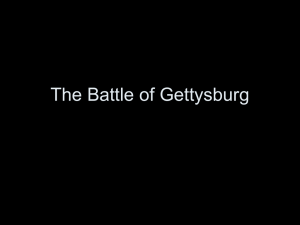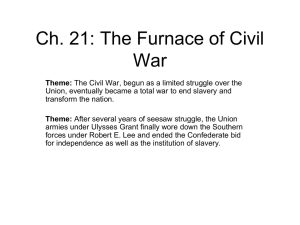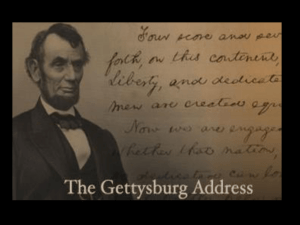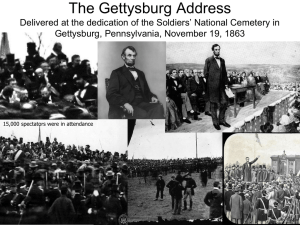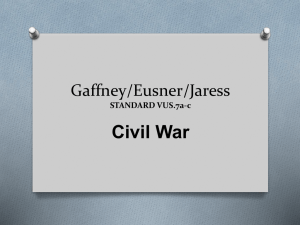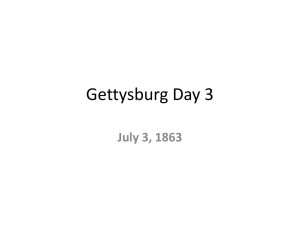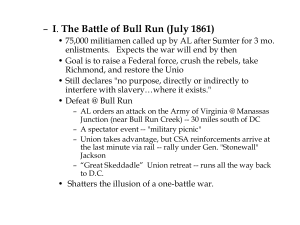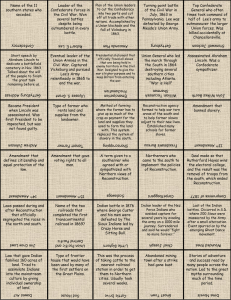The Civil War (USHC 3.2)
advertisement
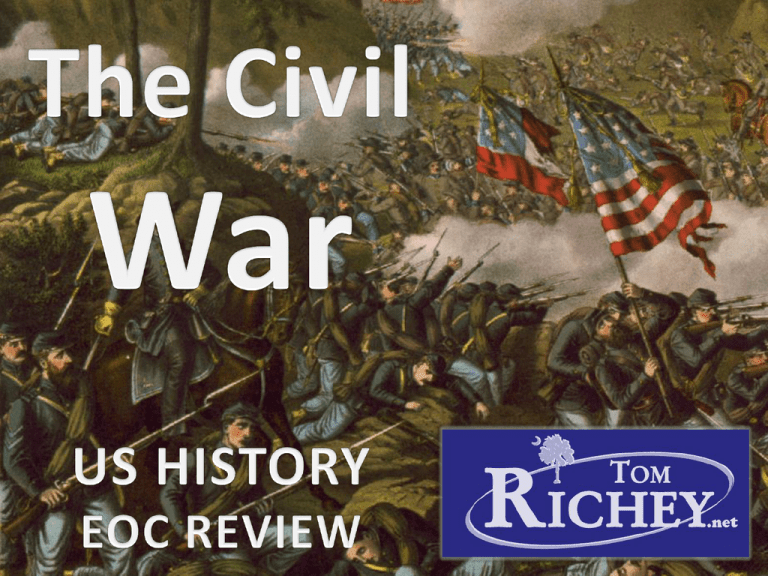
Summarize the course of the Civil War and its impact on democracy, including the major turning points; the impact of the Emancipation Proclamation; the unequal Treatment afforded to African American military units; the geographic, economic, and political factors in the defeat of the Confederacy; and the ultimate defeat of the idea of secession. “A House divided against itself cannot stand.” -- Abraham Lincoln Secession Indian Territory The “Upper South” waited… (CSA) The “Deep South” seceded after Lincoln was elected. DOCUMENT Causes of Southern Secession • Conflicting views about federal authority and states’ rights • Economic and cultural differences between the agricultural South and the industrializing North • Debates over the expansion of slavery into the western territories • The election of Abraham Lincoln in 1860 Confederate States of America (CSA) 1861-1865 First National Flag of the CSA Jefferson Davis, President War-making Capacity of the North and South Confederate Advantages • More Competent Generals – Southern Military Tradition • “Home Field Advantage” • DEFENSE as objective – NOT conquest • HIGH STAKES – Survival as objective Population Manufacturing Money Defense Military Leadership Political Leadership UNION CONFEDERATE Advantage Advantage The “Anaconda Plan” General Winfield Scott (1860) Decisive Battles of the Civil War Battle Year Fort Sumter 1861 Antietam (Sharpsburg) Gettysburg (PA) Vicksburg (MS) Appomattox Court House 1862 Victor Union Confed. X Significance Began the Civil War Tactical Draw Bloodiest Single Day of War Union Strategic Emancipation Proclamation X Lee’s first tactical defeat 1863 X Confederates lose control of Mississippi River 1865 X Lee surrenders to Grant 1863 Antietam September, 1862 Lee and McClellan fought to a tactical draw in the bloodiest single day of the war. Afterwards, Lee retreated to VA. STRATEGIC VICTORY for the Union CASUALTIES USA CSA The Emancipation Proclamation 1/1/1863 "That on the first day of January, in the year of our Lord one thousand eight hundred and sixty-three, all persons held as slaves within any State or designated part of a State, the people whereof shall then be in rebellion against the United States, shall be then, thenceforward, and forever free…. “Now, therefore I, Abraham Lincoln, President of the United States, by virtue of the power in me vested as Commander-in-Chief, of the Army and Navy of the United States in time of actual armed rebellion against the authority and government of the United States, and as a fit and necessary war measure for suppressing said rebellion…” DOCUMENT The Emancipation Proclamation Areas affected Areas specifically exempted 0 WHY, THEN? Lincoln’s #1 War Aim Preserve the Union –All other goals were secondary –Emancipation a goal IN ADDITION 1863 Decisive Engagements Engagement State Victory Chancellorsville VA Confederate Gettysburg PA Union Vicksburg MS Union Lee In 1863, Lee won his greatest victory and suffered his greatest defeat. Conscription aka, “The Draft” Confederate Union (1862) o Draftees could hire substitutes (1863) o Draftees could hire substitutes o Planters* exempt o $300 to exempt *20 or more slaves “Rich man’s war, poor man’s fight.” -- Anti-draft slogan Gettysburg July 1-3, 1863 After his victory at Chancellorsville, Lee invaded Pennsylvania in hopes of gaining a decisive victory on Northern soil. Gettysburg July 1-3, 1863 After three days of fighting, Lee failed to defeat the Union Army. LEE’S FIRST TACTICAL DEFEAT CASUALTIES UNION CONFEDERATE Siege of Vicksburg May 18 – July 4, 1863 Grant A Turning Point... The back-to-back losses at Gettysburg and Vicksburg were severe blows to the Confederacy. What effect did these battles have on the Copperhead movement in the North? The Gettysburg Address November 19, 1863 RHETORIC Fourscore and seven years ago… Of the people, by the people, and for the people… African-Americans in the Civil War About 180,000 African-Americans enlisted in the Union Army in the later years of the war. – 10% of Union Army / 1% of Population ALL VOLUNTEER Only whites were drafted in the North. 54th Massachusetts Volunteer Infantry The film, Glory (1989), is based on the story of the 54th Massachusetts Volunteer Infantry. The Old Flag Never Touched the Ground, which depicts the 54th Massachusetts Volunteer Infantry Regiment at the attack on Fort Wagner, South Carolina, on July 18, 1863. Election of 1864 1856 1860 1864 Four More Years! TOTAL WAR Lincoln Grant Sherman • After defeating McClellan, Lincoln was no longer bound by political considerations. Lee vs. Grant Virginia 1864-1865 WAR OF ATTRITION Sherman’s March Gen. William T. Sherman (USA) 1864-1865 Sherman’s March 1864-1865 Lincoln’s Second Inaugural Address Compare to First Inaugural March 4, 1865 Appomattox Court House April 12, 1865 Lee Surrenders to Grant Richmond, 1865

